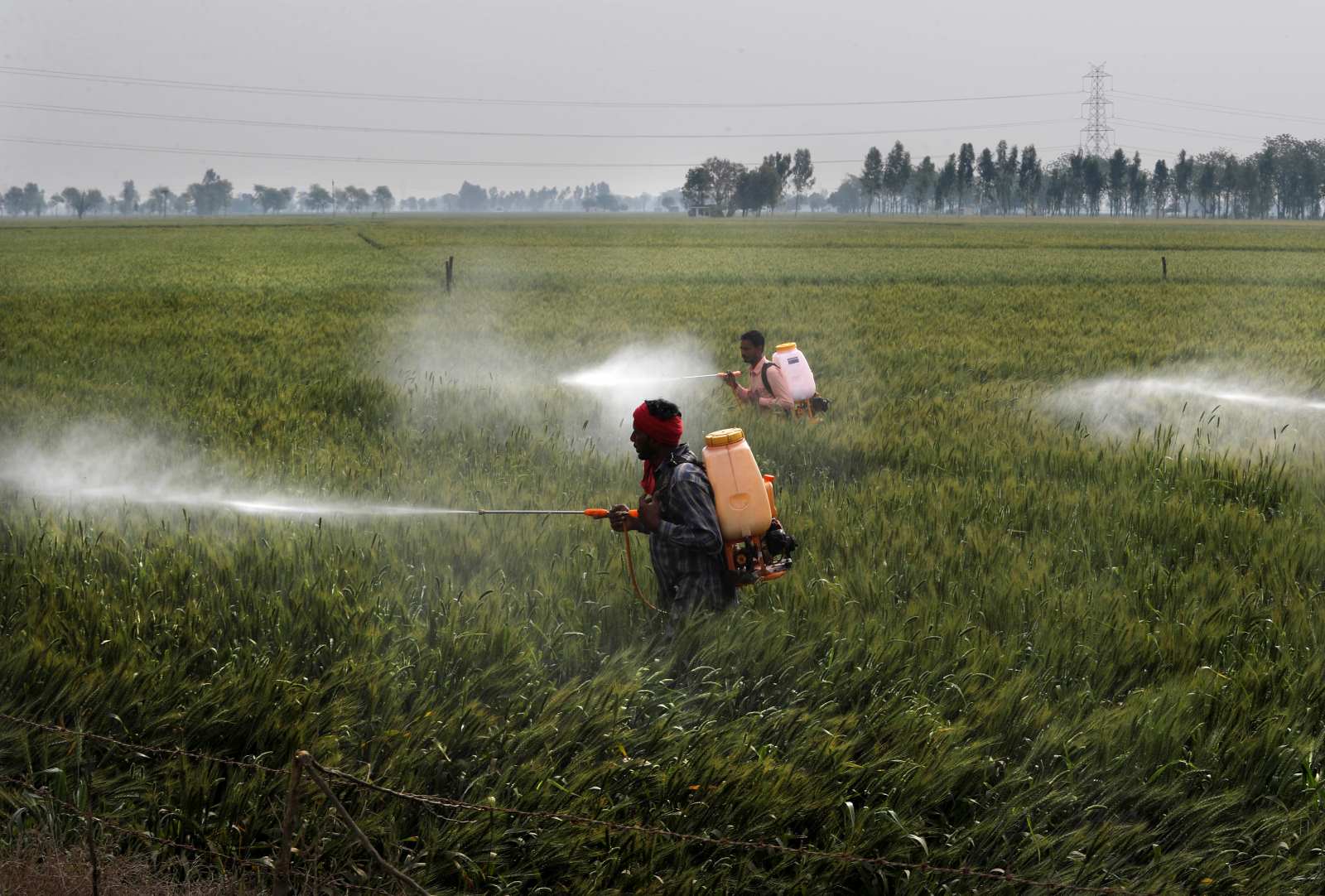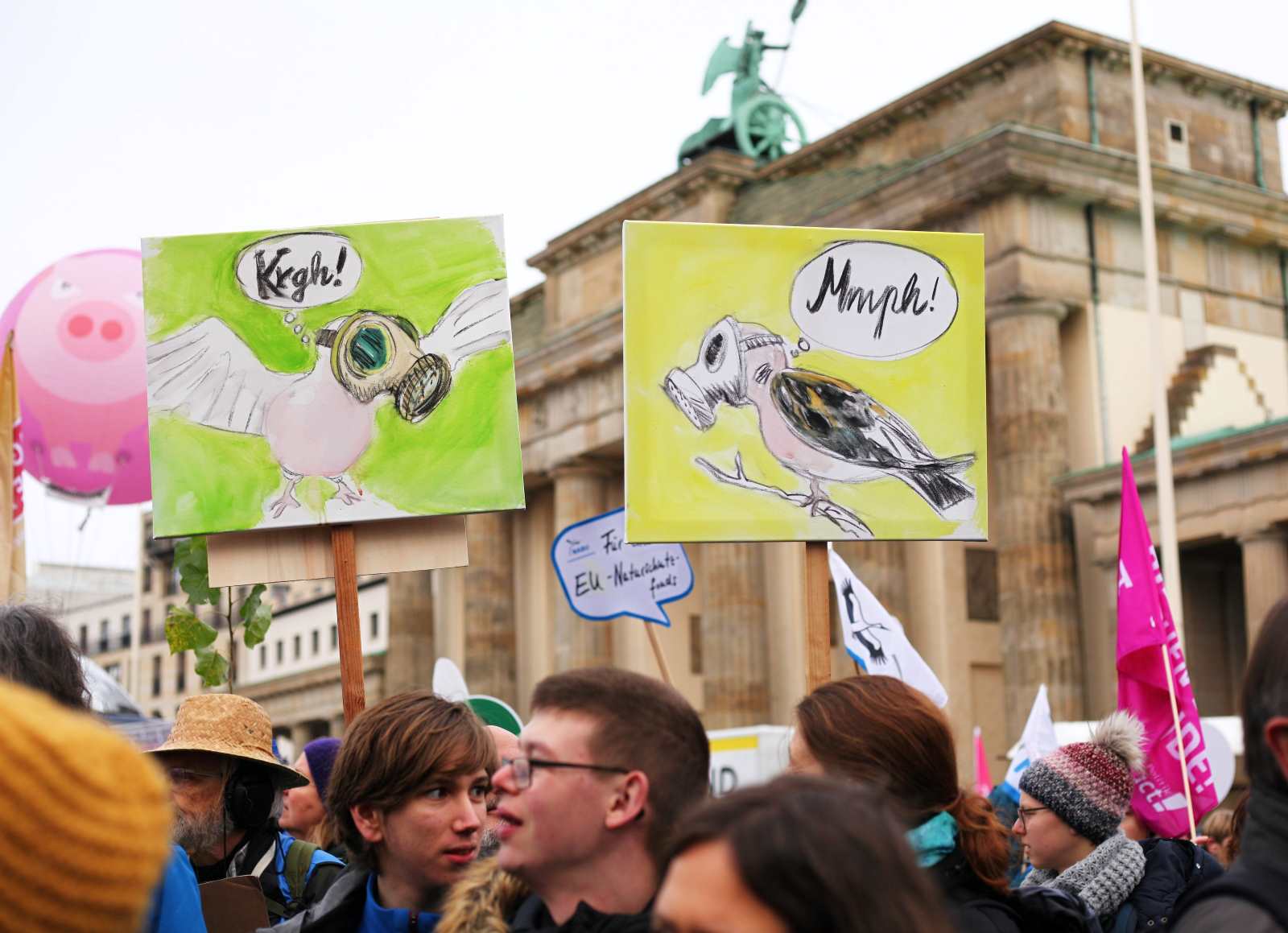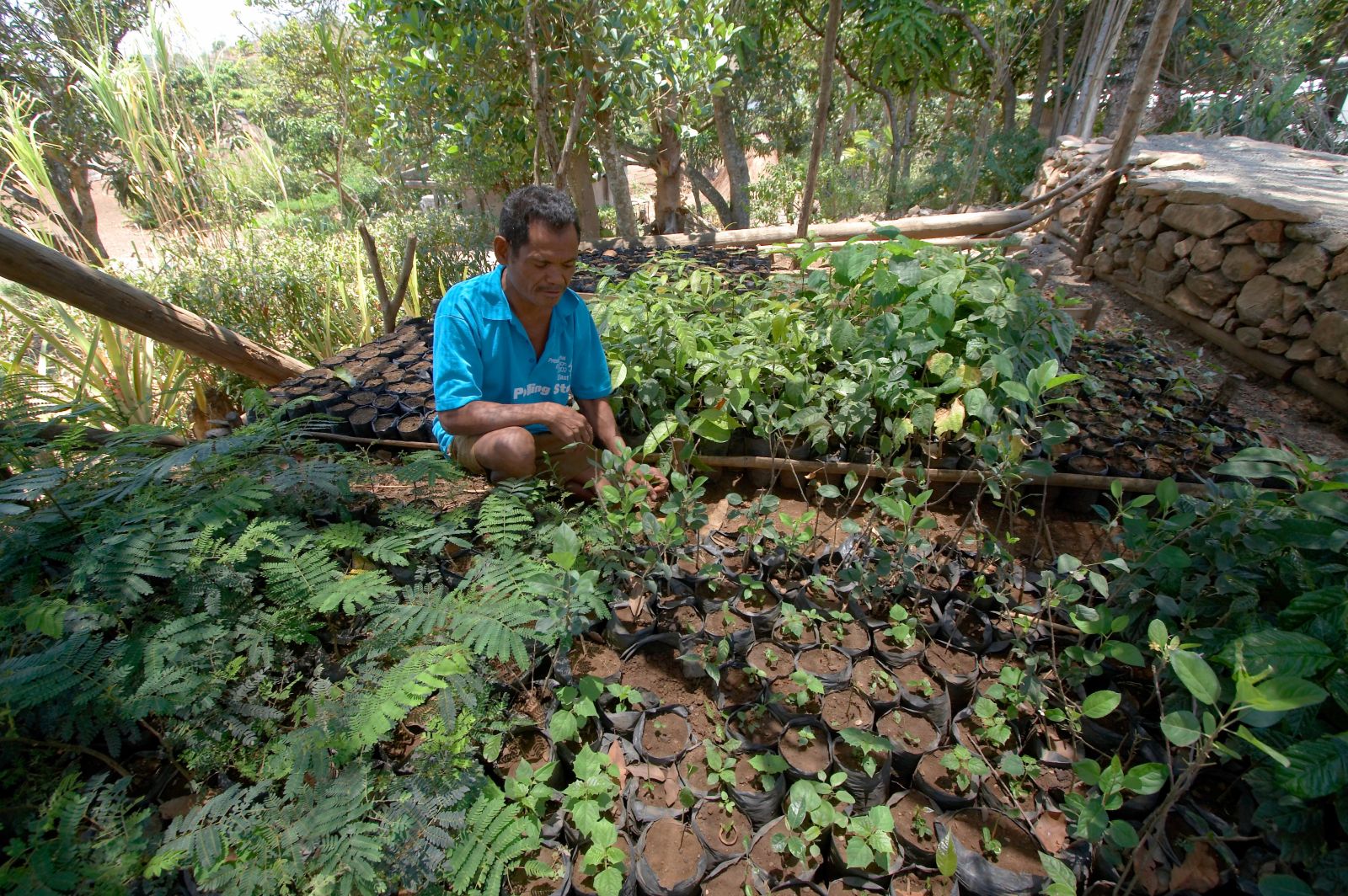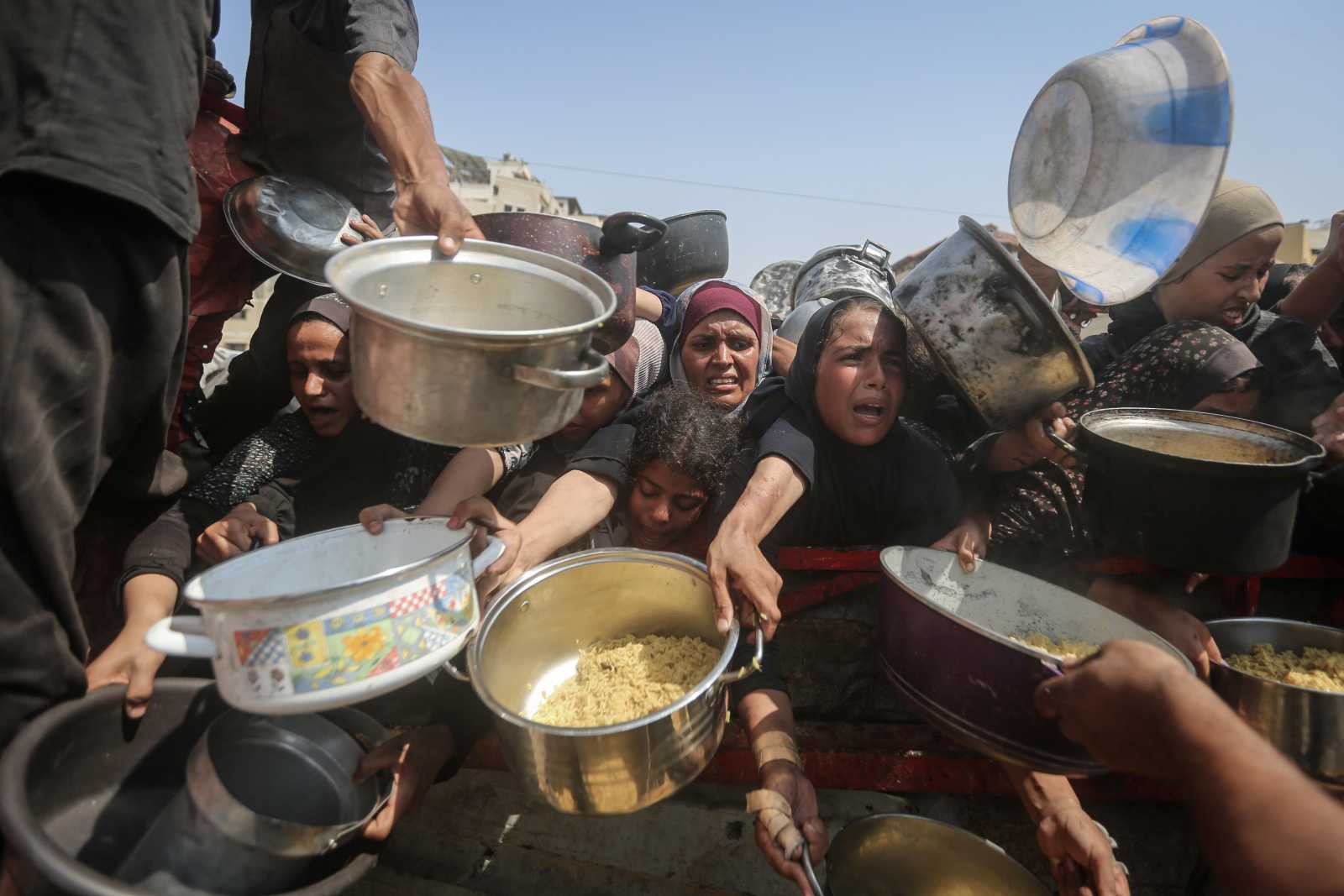Harmful practices
Why pesticides are more a curse than a blessing
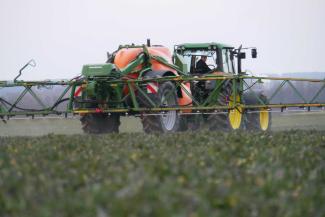
Humankind has been producing enough food to feed everybody on earth in recent decades. Nonetheless, hunger and undernutrition persist, and they tend to be worst where wars are raging. Both phenomena also haunt remote areas of low- and middle-income countries, where small-scale farmers struggle to make a living. The climate crisis is compounding problems.
It is a fallacy to believe that food imports from high income nations would somehow alleviate their plight. All too often, such imports strain national budgets. They also have huge social costs by crowding local producers out of local markets. Food imports thus thwart rural development.
For hunger to be eradicated, peace is the top priority. The next major issue is to rebalance urban and rural development. It is essential to boost farms’ innovative potential. In recent decades, the typical pattern in Africa was that governments’ subsidies primarily serve urban elites (including with food imports), whilst keeping smallholder farmers poor or even destroying their livelihoods.
This pattern must be turned upside down. Government spending must benefit smallholders. It should guarantee rural education, build infrastructure (roads, water and power supply) and provide good agricultural-extension advice. Such advice can do several things at once: increase farm profits by improving farm practices in ways that serve not only productivity, but also farm’s environmental resilience, both in terms of climate action and biodiversity protection. Advice must promote multi-target optimisation.
In this context, pesticides are of only minor relevance at best. Quite often, they will prove harmful. It also matters very much that pesticides are typically sold in packages with other farm inputs that predetermine agricultural practices without much regard for locally specific conditions.
Pesticides are certainly not what smallholder farmers need most. Better soil and water management are essential, and so are smart crop rotation and appropriate diversification of cultivars.
At the same time, farm prosperity depends on the general development of rural regions. Farming families need access to markets, which, in turn, means they need good local roads. Education will help them grasp opportunities, and reliable healthcare is needed to restore a persons’ ability to work in cases of illnesses or accidents. Power supply, water availability, mobile-phone connectivity are important too. Hard and soft infrastructures matter very much.
Smallholders will often find pesticides attractive, of course. These agrochemicals look like a magical way to reduce crop losses. There are, however, hidden costs which smallholders are not made aware of, and especially not if they are illiterate. Pesticides are toxic and cause serious harm to human health, including cancer, for example. Far too often, protective gear is not available or used.
Even in high-income nations, the application of pesticides is actually far more problematic than its advocates will admit. This was true right from the start.
The lessons of DDT
The first industry-made toxic agrochemical was DDT after World War II. It soon became clear that it not only eradicates pests, but affects other organisms as well. Moreover, its effectiveness declined fast wherever it was applied.
For complex reasons, pesticides typically lose effectiveness over time. Relevant issues include:
- To some extent, pests develop resistances to pesticides.
- Pesticides kill beneficial organisms which support farm productivity, for example by keeping a check on pests.
- Innovative high-yielding cultivars are often particularly susceptible to being damaged by pests.
- Invasive exotic pests may become prevalent in places where domestic pests have been diminished.
- The health of soils is compromised by monoculture cultivation which, in turn, depends on chemical inputs.
DDT seemed promising at first, but the experience was so bad that the substance has now been banned for several decades in high-income countries. Nonetheless, it is still in use in developing countries and emerging markets such as India, for example.
The chemical industry came up with other kinds of pesticides. Typically, however, some kind of downside eventually becomes apparent.
Ignored guidelines
In the 1980s, scientists realised that unlimited preventive pesticide application was not an option. They therefore developed the concept of Integrated Pest Management (IPM). It is a holistic approach which relies on sound farming practices such as crop rotation and diversification of cultivars. It only proposes a limited use of pesticides as a remedy once a specific pest affects a specific field after a diligent cost-benefit analysis. It does not permit pesticide use for preventive purposes.
According to EU law, IPM is mandatory. Nonetheless, only ten to 15 % of European farmers adhere to this best practice. The sad truth is that European authorities mostly tolerate the preventive rather than curative use of pesticides within certain limits. The other methods of plant protection are not practiced as prescribed by law. The reasons are that they tend to be more laborious, not well known and depend on a holistic approach. The general pattern is thus that farmers routinely spray their fields. Typically, they do not assess costs and benefits of pesticide application at all. That makes sense from the farmers’ perspective since pesticides are comparatively cheap.
IPM, on the other hand, is cumbersome and labour-intensive. Farmers must pay close attention to what is happening in the fields. They must closely monitor the weather which has an impact on what kind of pests can thrive. They must also stay aware of whether populations of beneficial organisms are thriving. It is more convenient to plan the application of pesticides long term. As long as farms are permitted to stick to their conventional practices, they will not switch to healthier pest management, and that is particularly true of capital-intensive farms with large-scale monocultures.
The Swedish example
Things differ from country to country, however. Sweden has brought down pesticide use radically without farms or consumers suffering harm. Since the 1980s, pesticide application dropped by about 75 %. Several national action plans made it happen. Sweden’s government set incentives for eco-friendly farming and also improved the technical advice it provides to farmers.
Unfortunately, the EU as a whole is not following the Swedish example. Indeed, pesticide sales have been increasing in many member countries since the turn of the millennium, even though they had declined a bit after the introduction of IPM in the early 1990s. The main reason for the resurgence is that pesticides lose their effectiveness over time, as explained above. If farmers want to stick to their practices, they must apply increasing amounts to achieve the same results.
More urgent than ever before
As Sweden shows, alternative approaches make sense. The very least European policymakers should do is therefore to revisit IPM, a concept that was developed in the 1980s and 1990s in response to the shortcomings and dangers of pesticides. Those downsides are even more obvious today, given that insect populations are in rapid decline. It is alarming that bees and other pollinators have become endangered species. By pollinating plants, they provide indispensable ecosystem services. Even people who only think in business terms must understand that these services have considerable monetary value.
Experts warn, moreover, that we are running out of innovative pesticides. Some liken the situation to the one with antibiotics. As multi-drug resistant varieties of infectious diseases emerge, it is becoming increasingly impossible to treat patients who suffer from those diseases, and the pharmaceutical industry is failing to develop effective new antibiotics. As pesticide-resistances increase, reliance on pesticides is becoming risky for similar reasons.
Organic farming, of course, makes sense too, and it does not require any toxic agrochemicals at all. It delivers good produce as well as good profits. Anyone who visits a European supermarket will see that organic fruits are not much more expensive than the conventional varieties and look just as nice. The statistics reveal, moreover, that the financial returns to farmers are better. An important reason is that organic farming is a multi-target approach that does not focus on maximising the cultivation of one single crop, but also on soil health, humus enrichment, agrobiodiversity and other goals.
Policymakers who want to improve the situation of rural areas in low- and middle-income countries would be well advised to learn from history. They should not listen to what the lobbyists for industrial-scale farming say but pay attention to what works and what does not. Competent farming advice and rural infrastructure work. Pesticides are unconvincing.
Susanne Neubert is the former director of Humboldt University’s Centre for Rural Development in Berlin. She retired last year. She is also a member of D+C’s advisory board.
susanne.neubert@agrar.hu-berlin.de

